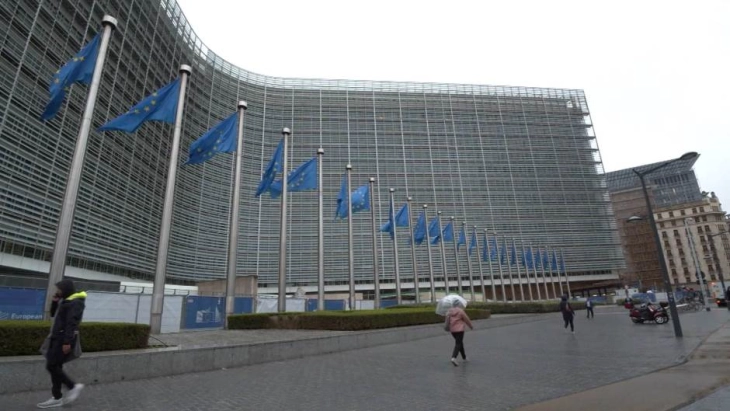EU diplomats: No support for decoupling North Macedonia and Albania

Brussels, 13 December 2021 (MIA) – Conclusions regarding the enlargement policy are yet to be agreed ahead of Tuesday’s ministerial meeting, the dispute between North Macedonia and Bulgaria, although one of the main obstacles, is not the only one, MIA’s Brussels correspondents has reported.
EU member countries, like last year, are finding it hard to align conclusions on enlargement. If no conclusions are defined, this could be the second year in the row when the EU is failing to reach any agreement on the policy. This time, however, it is very likely that Slovenia’s EU presidency could present presidency conclusions and unveil which member countries support them, which was not the case last year. Namely, there were no conclusions adopted at all in December 2020, Brussels diplomats have briefed MIA.
In addition to North Macedonia, diplomats also disagree as regards Turkey and Bosnia and Herzegovina.
Regarding the Skopje-Sofia dispute, Bulgaria during last week’s meeting insisted that Skopje has failed to meet the criteria required for the opening of negotiations. Neither the other 26 member countries nor the European Commission supported the position.
The option to decouple Albania and North Macedonia got slight if any support at all, a top EU diplomat has told MIA.
Bulgaria has voiced its opposition involving several formalities in the conclusions on North Macedonia. Bulgaria has been insisting on the use of the long name – the Republic of North Macedonia, MIA has learned from diplomats attending talks at ambassadorial level.
The Slovenian presidency in the introduction of the draft-conclusions uses the long name of all candidate countries before using the short names, such as North Macedonia, Serbia, Albania, etc. Sofia insists that the Republic of North Macedonia be used throughout the text, which is deemed unacceptable by the majority of candidate countries. A compromise is expected to be agreed, which would involve the long name of all candidates, not only North Macedonia, to be used throughout the text, diplomats have said.
Bulgaria’s major demand is the inclusion again of a sentence on the observance of the Friendship Treaty as a key part of the enlargement process involving North Macedonia. Although bilateral agreements are always mentioned in the year-end conclusions, a majority of EU member countries refuse to see it included as a key segment in the negotiations with North Macedonia, because it might open the door for a precedent to be established and the whole enlargement process to be ‘bilateralized’, contrary to the spirit of the new EU accession methodology, Brussels diplomats have told MIA.
Sofia is also disputing the deadline included in the draft-conclusions. Namely, the Slovenian presidency proposes that “negotiations with North Macedonia and Albania this year” should be included.
Talks are taking place at a higher level at the moment before Tuesday’s meeting of European affairs ministers, where they are scheduled to discuss the matter to reach a compromise on the final conclusions ahead of the EU summit on Thursday and Friday.
If no conclusions were produced and the Slovenian presidency decided to put forward its own conclusions, Bulgaria could be left isolated if the 26 EU countries signed the presidency’s conclusions.
Sofia, Skopje and Brussels are in constant communication and new draft-conclusions by the end of the day aren’t ruled out, diplomats have said, adding they’re not losing hope entirely that a solution for a compromise could be found at the last minute and regarding the opening of accession talks with Skopje and Tirana by the end of the year.







